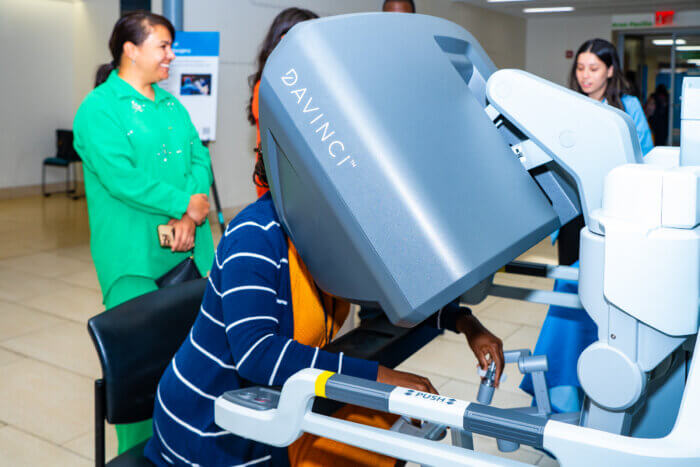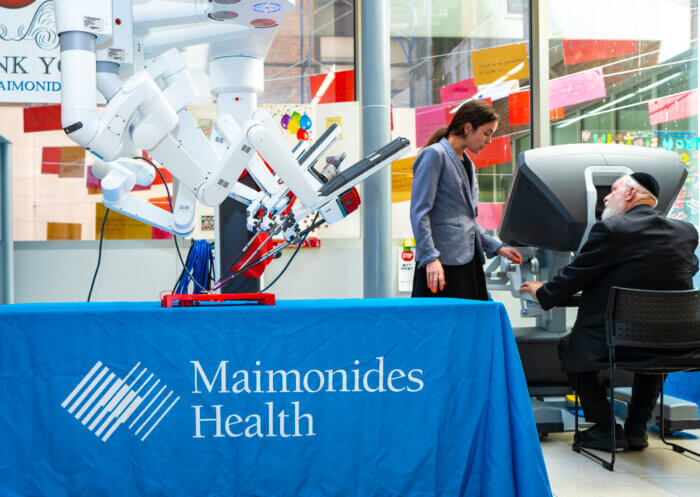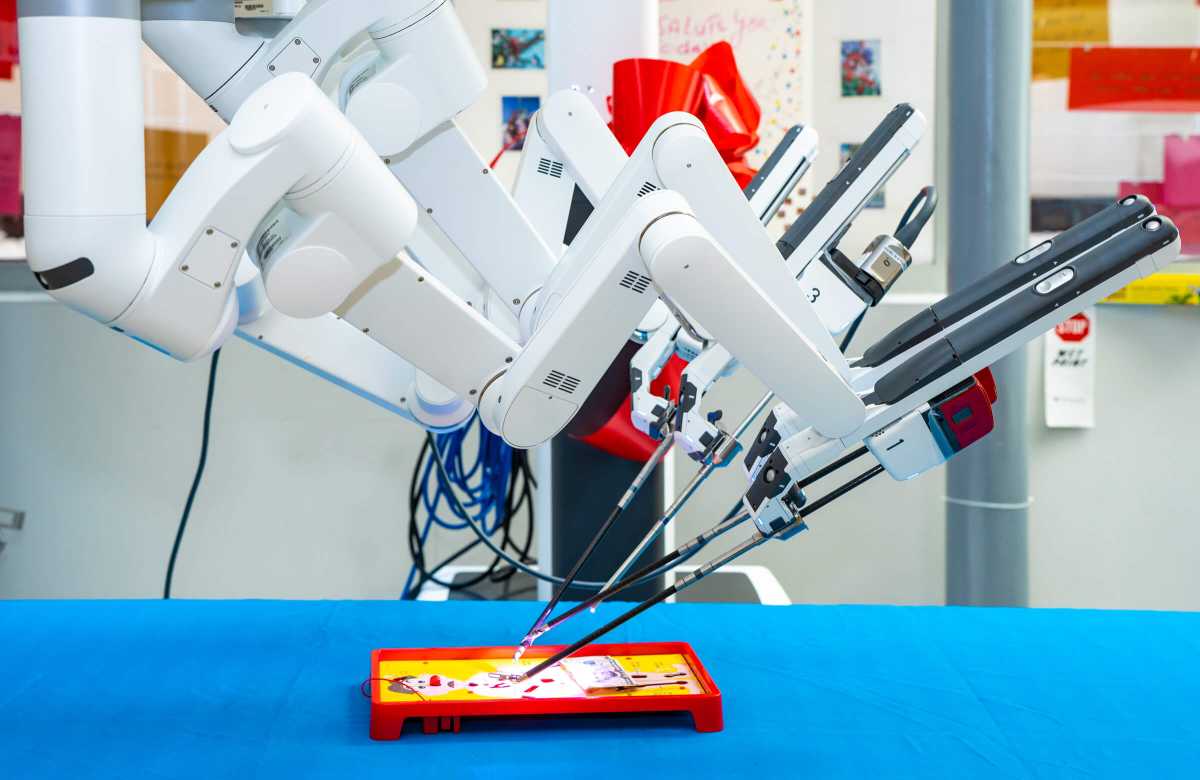An estimated 10% of all future surgeries carried out at Maimonides Medical Center will be robot-assisted, thanks to the addition of three new-state of the-art machines in Brooklyn.
The trio of Da Vinci robotic-assisted surgery systems have multiple arms with cameras and instruments that go into the body through very small incisions and allow surgeons operating the machines to perform complex procedures with greater accuracy and precision.
The three additional robots, unveiled on Monday, will allow the hospital to perform 600-800 more robotically-assisted surgical cases a year, according to the medical center.

“It’s the ultimate minimally-invasive surgical strategy. That’s really what the robots are about,” Dr. Patrick Borgen, chair of the surgery department, explained to Brooklyn Paper. “This is about precision, and the cameras that go into the body provide an incredibly high resolution, close up view of what we’re operating on. It’s a view that we never got with open surgery.”
The arms of the robots also move in ways that the human wrist will not, giving surgeons a wider range of motion top operate, dissect, suture, and repair.
Borgen say the benefits of these operations include smaller incisions, less pain, reduced scarring, and a decreased risk of infection.
“What you see through the robot is unlike anything we’ve seen in surgery before and that means things like cancer operations are going to be better, so it’s a giant leap forward,” Borgen said of the robotic systems’ 3-D high-definition visualization which helps surgeons navigate complex anatomical structures more effectively.
Around 20,000 inpatient and outpatient operations were undertaken at Maimonides last year across several different units. About 1,000 of those procedures were performed with the help of the two existing Da Vinchi machines, and Borgen said the additional units should help the number of robotic-assisted surgeries rise to 1,200 or 1,500 per year.

“Maimonides surgeons have performed minimally invasive, robotic-assisted surgery for over two decades,” said Kenneth Gibbs, Maimonides president and CEO. “As pioneers in the field, we train our residents and fellows on robotic technology – gaining first-hand experience performing the latest robotic-assisted procedures. Having this technology close to home is invaluable for our patients.”
The state-of-the-art robotic surgical systems are used to treat a range of conditions — including certain cancers, hernias, and endometriosis — and can even be used in hysterectomies or joint replacements.
“Given that these robotic assisted, minimally invasive procedures offer improved recovery time, less pain and minimal scarring, many people can return to daily activities quickly with little or no postoperative restrictions,” said Dr. Rebecca Rhee, Division Chief of Colon & Rectal Surgery, Program Director, General Surgery Residency.

























